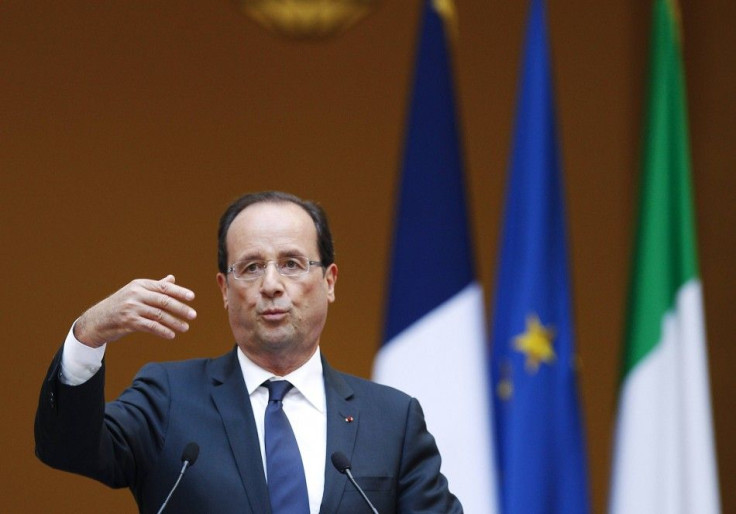Au Revoir! France?s Rich Flee Hollande?s Sky-High Taxes, Proving Cameron Right

Francois Hollande is in a tough spot.
The Socialist French president has fallen out of favor with the well-to-do crowd -- they're fleeing the country to escape a new tax system that threatens to dig deep into their assets.
A representative of the British real estate firm Sotheby's Realty told the Telegraph on Monday that its French offices sold more than €1.7 million worth of high-end property from April to June this year, a stark increase in sales as compared to the same period last year.
Alexander Kraft heads up the French branch of Sotheby's Realty. He explained that Hollande's economic policies had quite a bit to do with this trend.
The result of the presidential election has had a real impact on our sales, he said. Now a large number of wealthy French families are leaving the country as a direct result of the proposals of the new government.
But there may not be much else the French government can do. Earlier this month, the French Court of Auditors released a dire report on the state of the country's finances. It found that Hollande and his new Socialist-majority Parliament won't meet budget targets unless they can somehow raise at least €6 billion by the end of 2012.
Unemployment is over 10 percent and economic growth is not expected to pass 1 percent this year. Meanwhile, public debt is fast approaching 90 percent of GDP.
France is desperate for income, and that puts Hollande, who ran as the anti-austerity candidate against incumbent President Nicolas Sarkozy in May, in a tough spot. To live up to his campaign promises, he needs new sources of revenue that won't pinch his electorate.
So Hollande is going after the wealthy. He supports a tax rate of 75 percent for anyone making more than €1 million per year. The next bracket -- those making over €72,000 per annum -- will see their rates increase from 41 to 45 percent. Hollande has cut government salaries, including his own, and wants to add special taxes for oil companies and big banks.
Now wealthy landowners are in search of greener pastures, and not everyone is surprised. In January, British Prime Minister David Cameron called it.
Cameron ruffled feathers at the G20 summit in Mexico when he scoffed at Hollande's tax rate proposals. When France sets a 75 percent top income tax rate, we will roll out the red carpet, and we will welcome more French businesses which will pay their taxes in Britain, he said, according to Agence France-Presse. That will pay for our public services and our schools.
French Labor Minister Michel Sapin fired back. I don't know how one can roll out a red carpet over the Channel; it risks taking on some water, he joked.
So who's laughing now?
For France, at least, there is a silver lining. Kraft told the Telegraph that vacated properties don't languish after their abandonment, since the country has a relatively stable real estate market. As French citizens fly, foreigners will seize the opportunity to move in.
These properties are then bought up by foreign investors looking for a stable real estate market like France to invest in, said Kraft.
It shows the high-end property market is holding up very well, even in these difficult times.
© Copyright IBTimes 2025. All rights reserved.






















